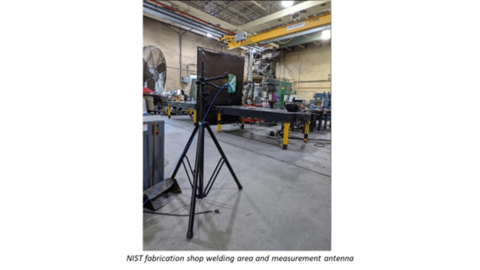NIST's Industrial Wireless Systems Team Publishes Paper on the Impact of TIG Welding Interference on Industrial Wi-Fi Networks

NIST's Industrial Wireless Systems team’s paper, titled “On the Impact of TIG Welding Interference on Industrial Wi-Fi Networks: Modeling of Empirical Data and Analytical Studying of Coexistence,” was accepted to the 7th IEEE International Conference on Industrial Cyber-Physical Systems (ICPS 2024). The conference is sponsored by the IEEE Industrial Electronics Society (IES). The conference will be held in May 2024 at St. Louis, MO, where the paper will be presented by Mohamed Kashef (Hany).
The use of wireless communications technologies for industrial applications is an enabler for the advanced manufacturing vision of massive connectivity, flexible manufacturing, and extended use of mobile platforms. The use of IEEE 802.11 Wi-Fi in industrial applications has been enabled by time-sensitive networking (TSN) capabilities to achieve deterministic communications within time-critical applications. Any wireless interference over the shared medium can impact the performance of IEEE 802.11 industrial wireless networks through collisions or occupying the medium leading to increased latency and decreased service quality.
The Industrial Wireless Team at NIST measured the over-the-air activity from a Tungsten Inert Gas (TIG) welding station and found that it produces significant interference power in the 2.4 GHz band, commonly used by the IEEE 802.11 networks. The measurements were taken in the machine shop of the National Institute of Standards and Technology (NIST), in Gaithersburg, Maryland, as shown in the photo. In the article, the team presents a modeling procedure for non-communications industrial wireless interference from TIG welding to recreate the signal in a lab environment and analytically study its impact on operational industrial wireless Wi-Fi communications systems.
This procedure has been recommended for inclusion in the emerging IEEE P3388 standard testing procedures. The proposed IEEE P3388 provides a reference test architecture for the performance evaluation of industrial wireless systems and an assessment process for various industrial wireless use cases.

